What are the best trees to plant in New York?
Finding the best trees to plant in New York was not as easy as I thought. Some require lots of care, others are don’t survive extreme weather, and lots are just not easy & quick enough to grow.
That’s why I created a list of the 10 Best Trees to Plant in New York!
This ultimate guide will give you the best trees to plant, why you should plant them, and even how to plant them.
Read THIS Before Planting Trees in New York
Knowing what hardiness zone New York is in is critical to understanding the best trees that can be grown.
It can be the difference between your tree thriving and growing or becoming stunted and even die.
New York is mostly considered Hardiness Zone 5 & 6
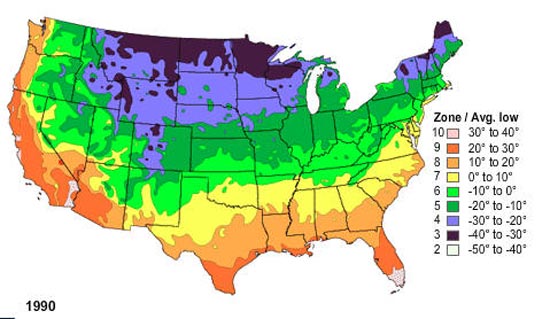
10 Best Trees to Plant in New York
#1. Oak Tree
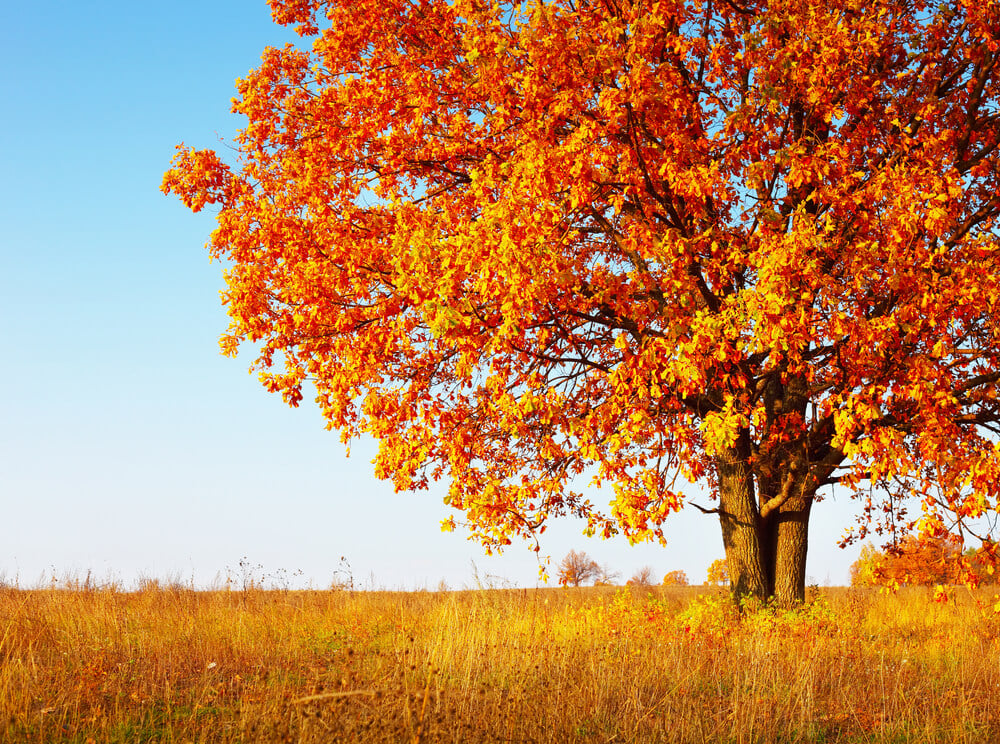
Popular Varieties: White, English, Northern, Bur
Why Grow Oak Trees in New York?
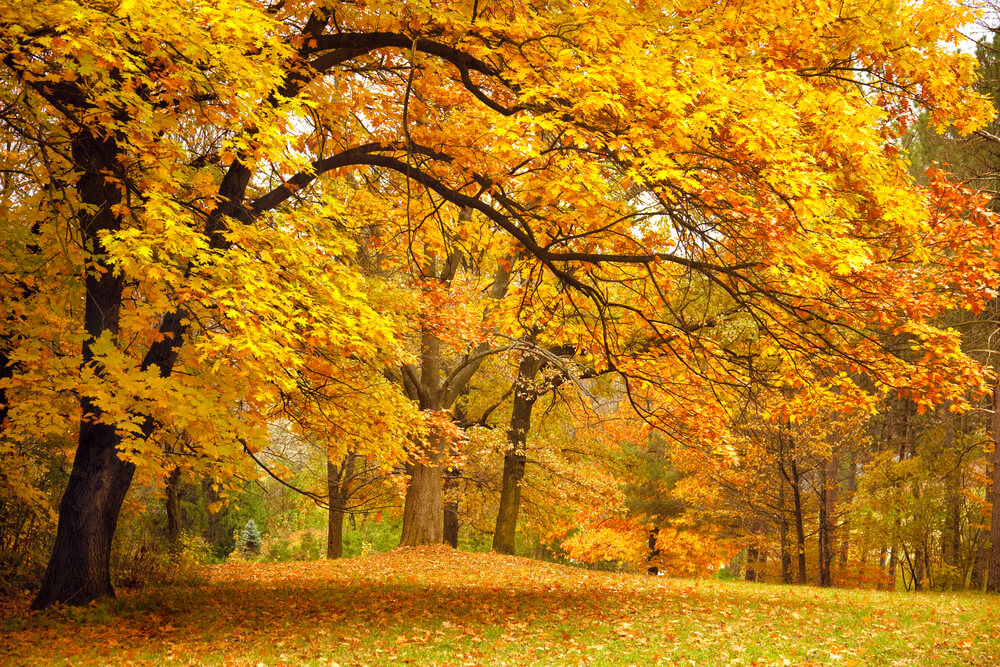
Fast-Growing:
- The oak tree is one of the fastest growing trees in New York. It can grow up to 80 feet tall and only takes a few short years to provide shade for your yard.
Low-Maintenance:
- The oak tree is one of the lowest maintenance trees that you can grow anywhere in New York. It can be grown in almost any type of soil, can tolerate pollution, and thrives in both extreme heat and cold.
Beautiful Fall Leaves:
- If you want to add color in both the summer and the fall then grow oak trees. Expect beautiful shades of orange, red, and brown during the fall.
THESE Could Harm Your Oak Tree
Pests:
- Young oak trees are very prone to being attacked by pests. Caterpillars, sawflies, oak worms, and borer are especially harmful to oak trees.
Disease:
- Young oak trees are also very prone to certain diseases and the necessary precautions should be taken. The diseases that can specifically harm your oak tree include chlorosis and hypoxylon cankers.
Additional Resources
It should be noted that it is not recommended to grow oak trees if you are worried about their strong underground roots destroying the foundation of your house. It should also be noted that you should not plant your oak tree near your house due to large branches easily falling.
#2. Maple Tree
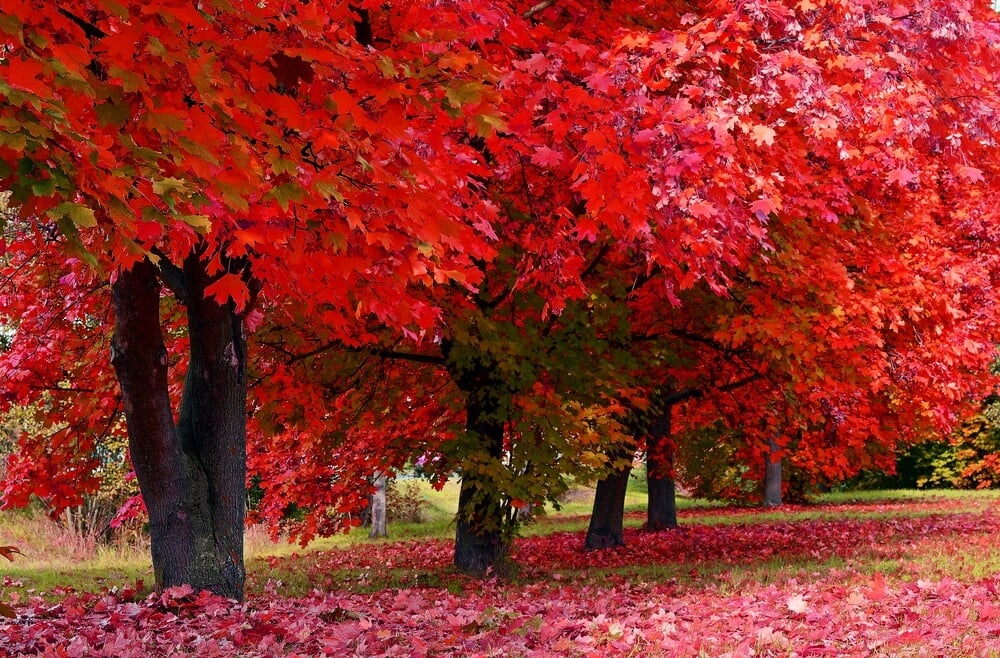
Popular Varieties: Red, Norway, Sycamore, Sugar, Silver
Why Grow Maple Trees in New York?
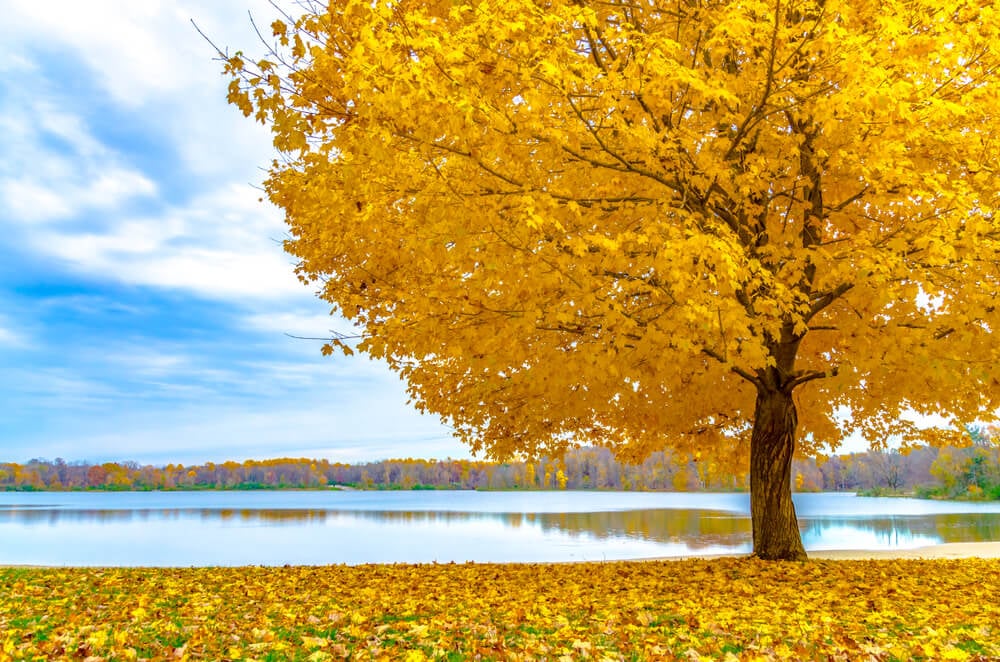
Shade:
- Maple Trees are the perfect type of tree to provide shade for you and your house. They grow incredibly fast, have large branches and leaves, and can be planted almost anywhere in your yard.
Beautiful Colors:
- Maple Trees are one of the few trees that can provide beautiful colors in spring, summer, and fall. Expect amazing flower blooms in the spring, beautiful shades of green in the summer, and vibrant colors of orange, red, yellow, and orange in the fall.
Sturdy Tree:
- Maple trees are the sturdiest type of tree to grow in New York. Because of its large root system maple tree can live over 100 years, can withstand cold, wind, heat, and there are very few diseases or pests that can destory your tree.
THESE Could Harm Your Maple Trees
Pests
- While mature maple trees will not be affected by pests, young maple trees can become prone to damage from pests like deer, squirrels, and even birds. Deer can destory the trunk of the tree and squirrels and birds can potentially eat the leaves of the tree.
Extreme Cold
- Mature maple trees can survive long periods of sub-zero temperatures. Young maple trees on the other hands will die if the weather gets too cold within the first two years of its life. Because of this you should wrap your tree in the winter with burlap.
Additional Resources
There are very few reasons not to grow maple trees. They are perfect in rural areas, the suburbs, and even in certain cities. The only reason you would not want to grow a maple tree is if you have a small yard that is already crowded with trees.
#3. Japanese Lilac Tree
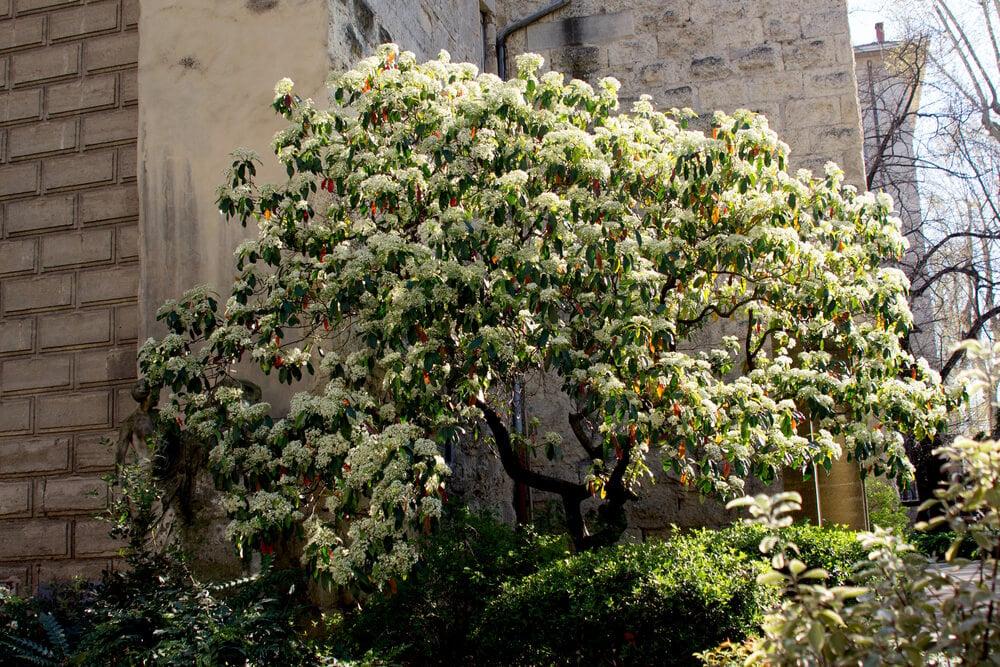
Popular Varieties: Golden Eclipse, Ivory Pillar, Ivory Silk, Signature
Why Grow Japanese Lilac Trees in New York?
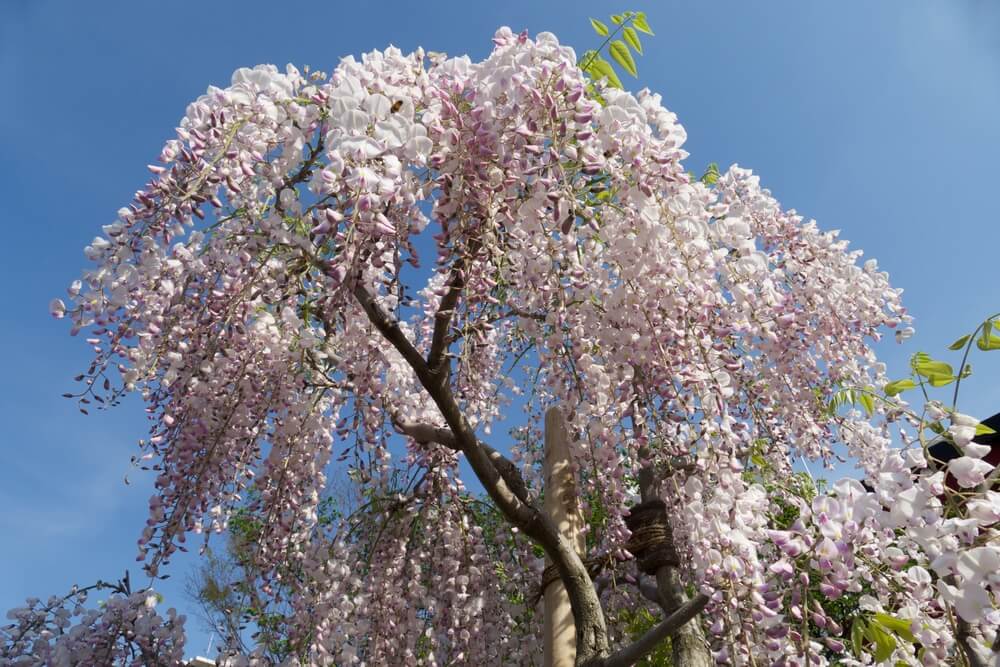
Perfect for Small Spaces:
- There are very few trees in this article that is good for small space. The Japanese Lilac Tree though is perfect for small and difficult spaces. You can control its size by pruning and maintaining it.
Beautiful Accent:
- Almost all of the trees on this list are the foundation on your yard and land. The Japanese Lilac Tree though is the perfect accent for shrubs, bushes, flowers, and any other tree or plant in your yard.
Low-Maintenance:
- The Japanese Lilac tree is the lowest-maintenance tree on this list. It doesn’t produce suckers, doesn’t need pruning, is not prone to insect infestations or diseases, and requires very little water.
THESE Could Harm Your Japanese Lilac Trees
Shade:
- Japanese Lilac trees require full-sun. If you plant your tree in full-shade there is a chance it will not grow as it should and as a young tree it may potentially die.
Poor Soil:
- This type of tree requires well-draining, loose soil. It does not tolerate clay nor does it do well in compact soil. If you plant your tree in anything but well-draining, loose soil there is a good chance it will not be able to properly grow.
Additional Resources
The Japanese Lilac Tree is not only one of the easiest and best trees to plant in New York, but it is also one of the least expensive and most easily found trees throughout the entire state.
#4. Crabapple Tree
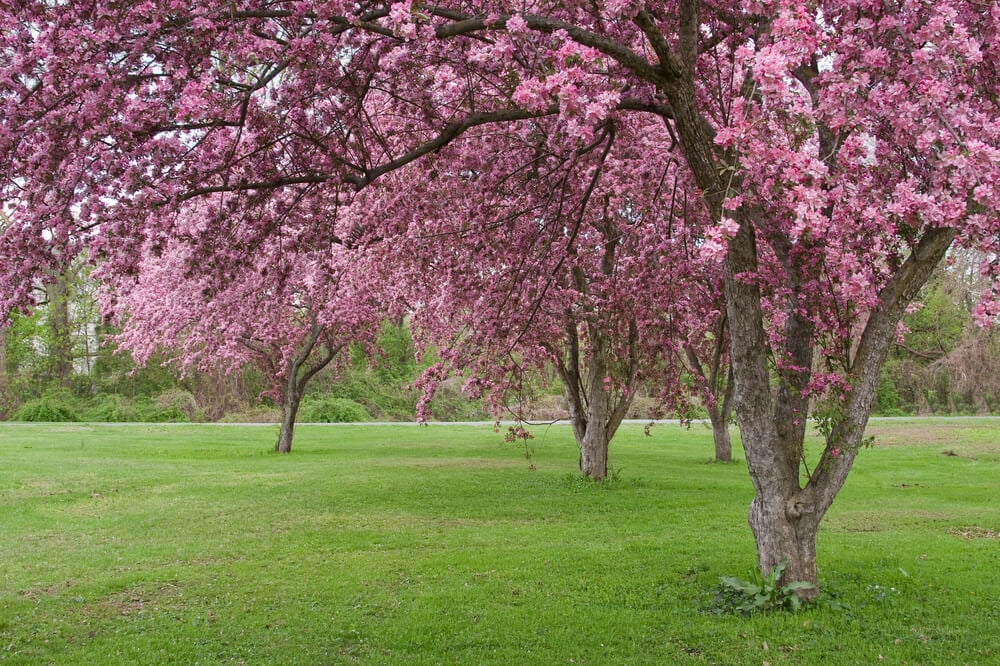
Popular Varieties: Harvest Gold, Snowdrift, Golden Hornet, Sugar Tyme
Why Grow Crabapple Trees in New York?
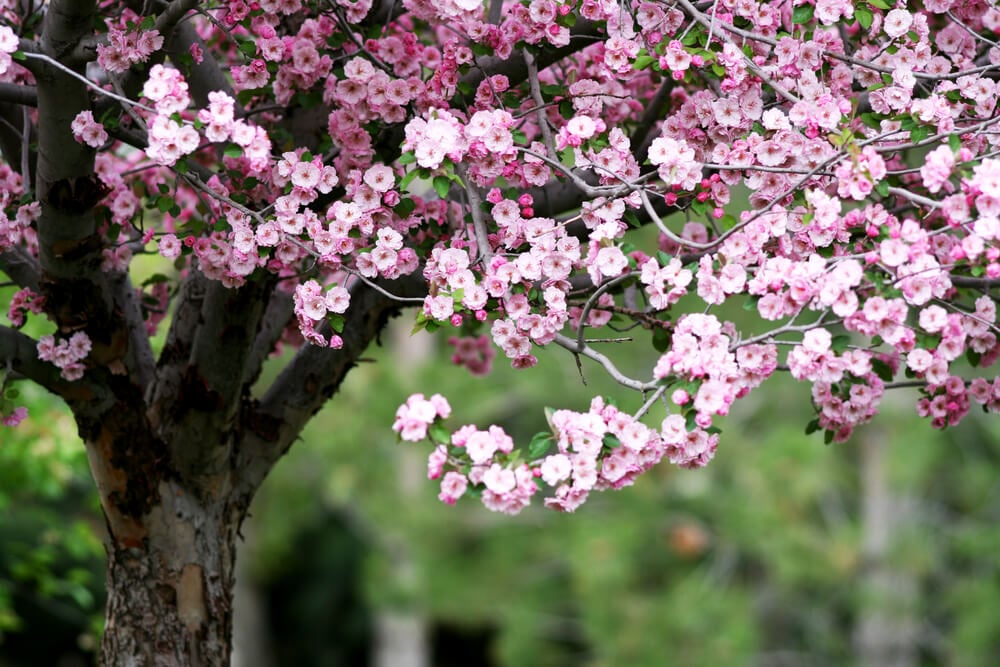
Great Cross-Pollinator:
- Out of all the trees on this list the crabapple tree is the best cross-pollinating tree. It should be planted near apple, pear, and cherry trees to help attract pollinators and encourage more fruit growth.
Easy to Grow:
- The Crabapple tree is the easiest tree on this list to grow. You can plant it anywhere in your yard, in any type of soil, full-sun or shade, and in any space.
Spring Blooms:
- All the trees on this list have pretty spring blooms, but none as beautiful as the Crabapple Tree. This tree will not only have beautiful shades of white, pink, and red blooms, but it will also have the longest blooms all spring and sometimes even fall!.
THESE Could Harm Your Crabapple Trees
Old Age:
- When it comes to Crabapple Trees there is very few if any things that can harm your crabapple trees. Old age is typically the only thing you have to worry about. When your crabapple tree gets older it is best to cut it down as it may attract harmful insects and pests to other trees by it.
Additional Resources
If you are interested in learning about some of the trees that crabapples can pollinate check out my articles about apple trees and pear trees!
#5. Fir Tree
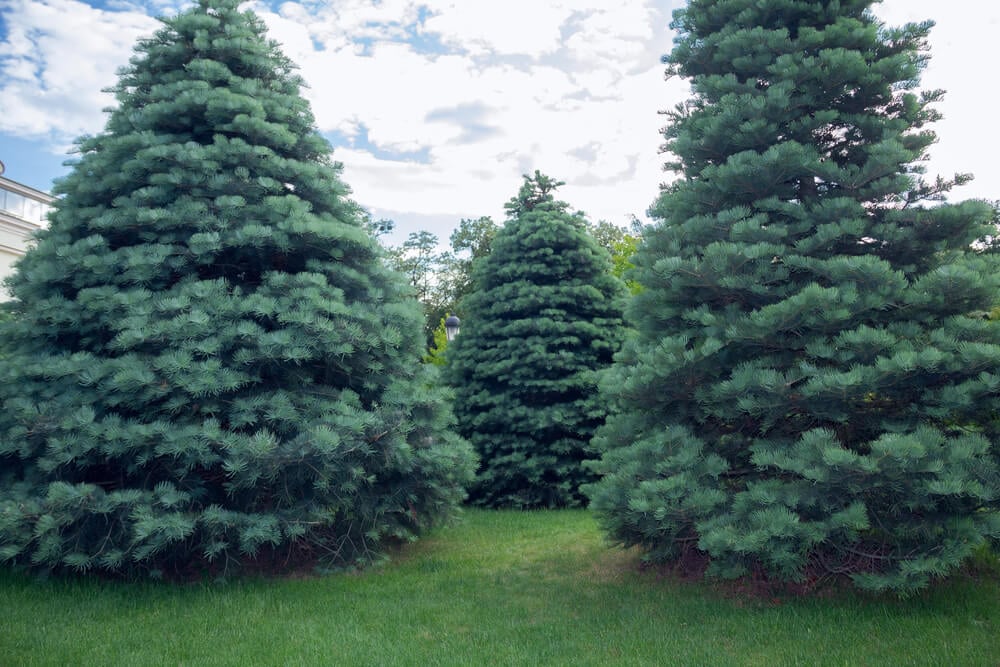
Popular Varieties: Korean, Nordmann, White, Fraser
Why Grow Fir Trees in New York?
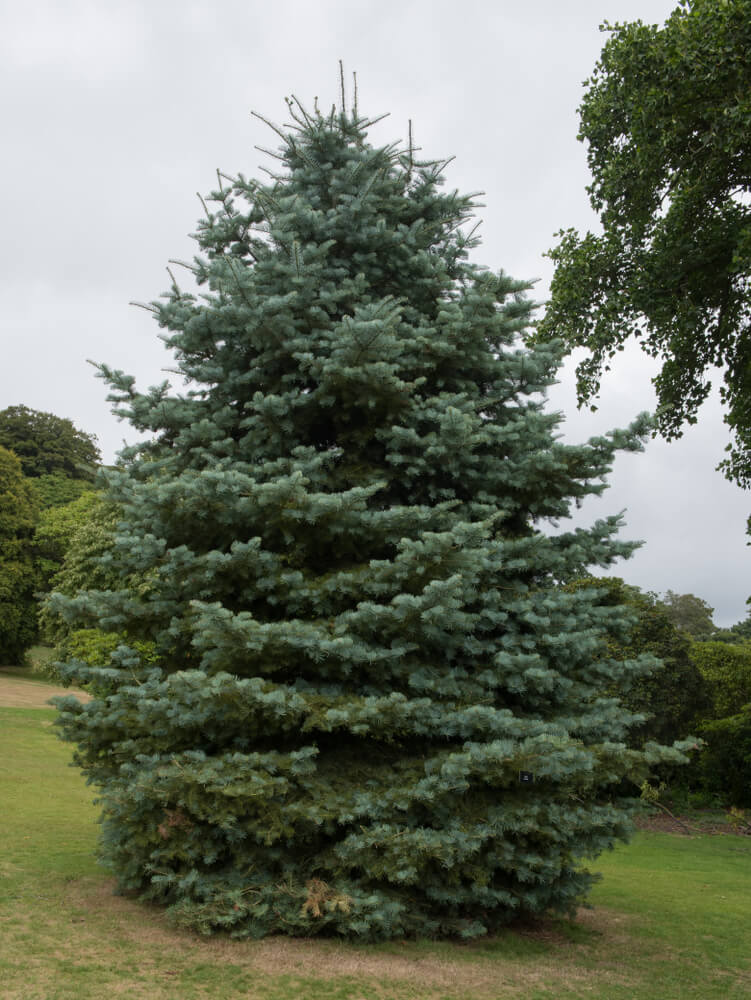
Privacy:
- When it comes to adding privacy to your yard the fir tree is the number one choice in cities, suburbs, and rural areas. When planted together they not only add privacy, but will protect your yard from noise pollution and garden pests.
Low-Maitenance:
- Like many other trees on this list the fir is incredibly low-maitenance. Unlike non-conifer trees though this type of tree is incredibly hardy against cold weather and warm weather, requiring very little water.
Attract Animals:
- The fir is a great type of tree to not only attract animals, but is the perfect nesting spot for squirrels, rabbits, deer, and even many types of birds.
THESE Could Harm Your Fir Trees
Humans:
- Because fir trees are so incredibly hardy, it is very tough to kill them. The number one cause of fir tree death is humans. It is usually because we overwater fir trees too much, we prune them at the wrong time, etc.
Disease:
- While it is rare, disease can stunt your fir tree growth and even kill it. The most common types of fir tree diseases include Swiss Needlecast, White Pine Blister Rust, and Dwarf Mistletoe.
Additional Resources
The biggest tip when purchasing and growing a fir tree is deciding what type you want. Some fir trees only grow 2 or 3 feet tall and others can grow 40 to 50 tall. Some of slim and others are very wide. Carefully pick a fir tree that meets your needs.
#6. Hickory Tree
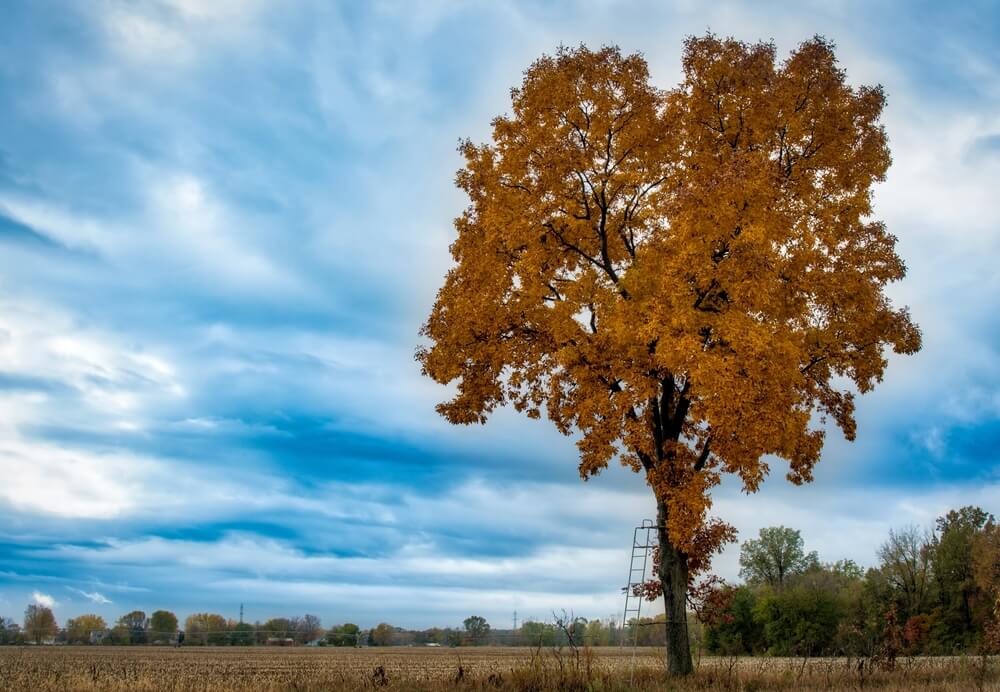
Popular Varieties: Shellbark, Bitternut, Pecan, Shagbark
Why Grow Hickory Trees in New York?
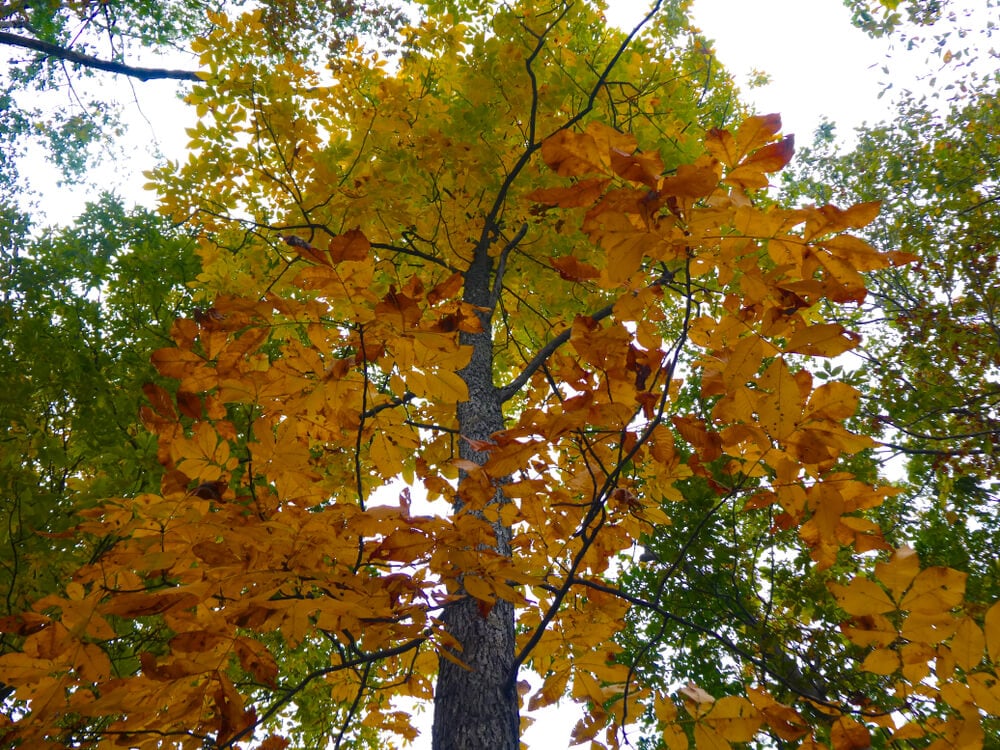
Fast-Growing:
- If you want to provide shade and color quickly in your yard then you need to plant a hickory tree. This is one of the fastest growing trees reaching heights of 50 feet and having a far spread.
Nuts:
- Most hickory trees produce some type of nut. Most of the nuts produced are edible for animals and some of them (like pecans) are even edible to humans. Best of all these nuts can help quickly grow additional hickory trees too!
THESE Could Harm Your Hickory Trees
Insects:
- The only harm that can come to your hickory tree is from insects. More specifically, the hickory bark beetles. This type of insect attacks only hickory trees and destroys the bark of the tree leaving it prone to getting diseases and fungus.
Additional Resources
There are many benefits to having hickory trees in your yard, but it should be noted that they are very tough to come by. In addition, they require moister soil to fully grow although they have been known to adapt in dry soil too.
#7. Elm Tree
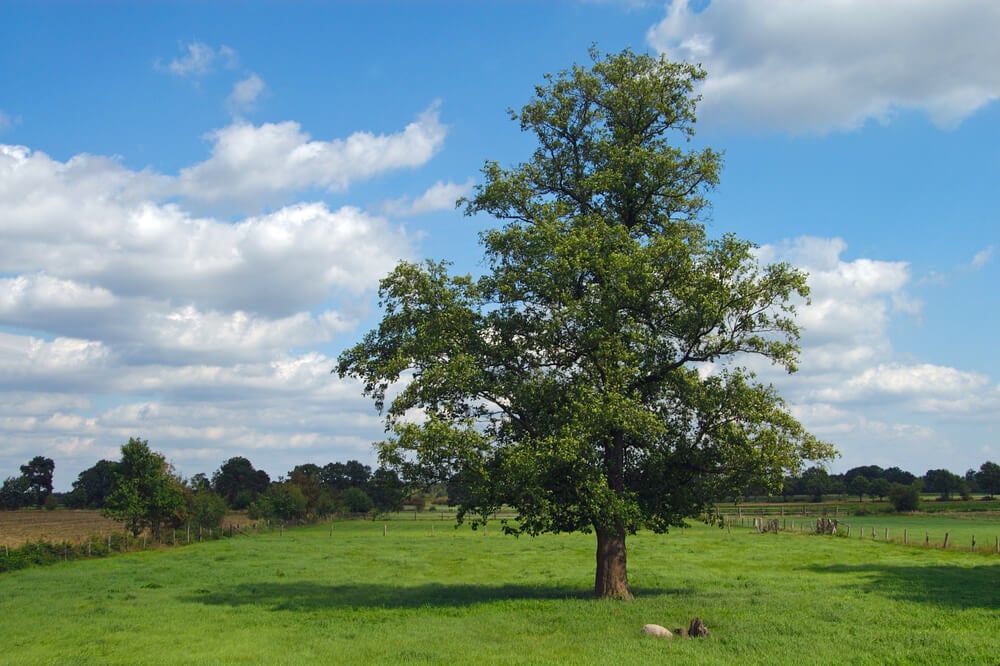
Popular Varieties: American, Chinese, Siberian, Ulmus Minor
Why Grow Elm Trees in New York?
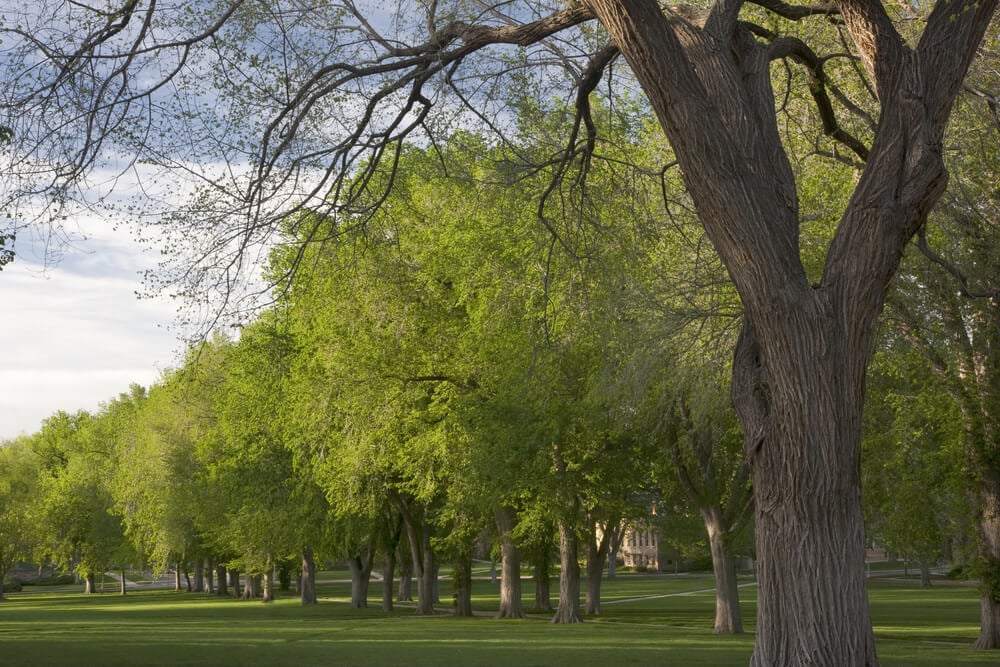
Loves heat:
- Elm trees love heat making them one of the most versatile trees that you can grow almost anywhere in New York!
Perfect for Shade:
- Like the other trees on this list, the elm tree is perfect for shade. It grows 40-50 feet tall, is incredibly wide, and perfect for anyone who wants an “old country” feel in their yard.
THESE Could Harm Your Elm Trees
Diseases
- Elm trees are the most disease prone tree on this list. The Dutch Elm disease is destroying almost all of the trees in North America and is making it incredibly difficult to plant, grow, and protect your elm tree.
Insects
- If the dutch elm disease wasn’t bad enough, elm trees are very prone to insects too! The number one insect that will destroy bark and leaves is the beetle. There are over 5 different types beetles that will attack different parts of the tree.
Additional Resources
Elm Trees are one of the oldest types of trees in North America. They are beautiful, native, and perfect for homeowners and gardeners alike. To learn more about the Dutch Elm disease that is destroying them and how to help I would visiting HERE.
#8. Japanese Maple Tree
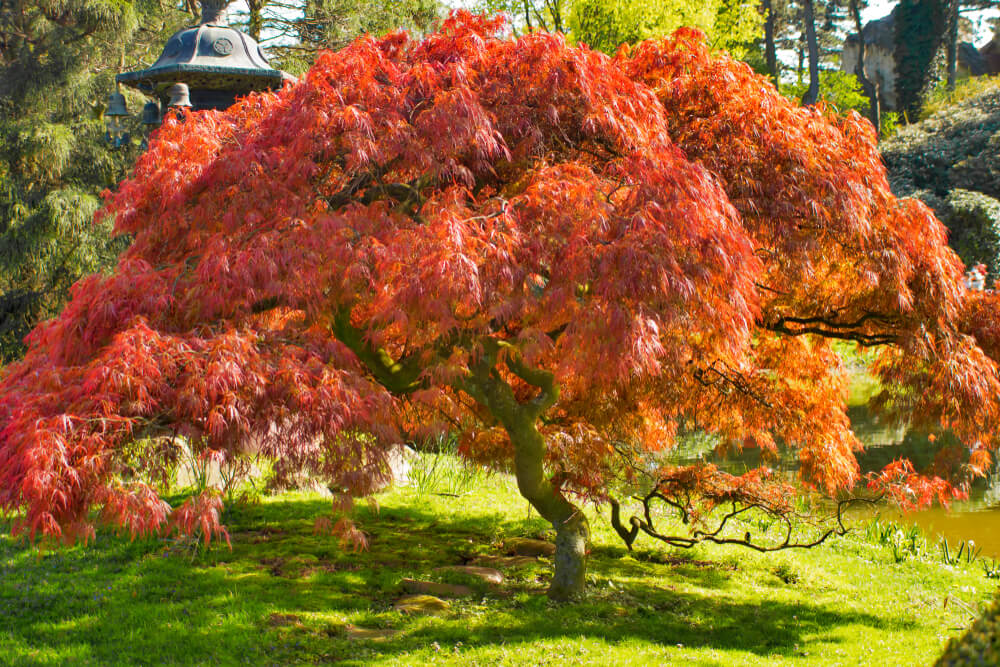
Popular Varieties: Dissectum & Palmatum
Why Grow Japanese Maple Trees in New York?
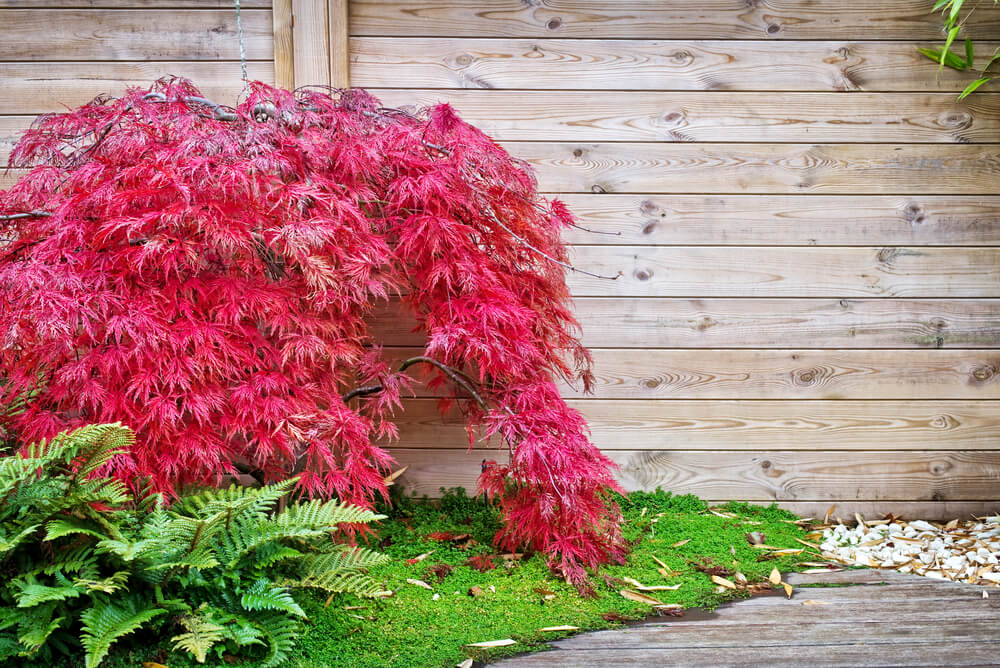
Ornamental:
- Out of every tree on this list the Japanese Maple Tree is the best ornamental tree. It has beautiful shades of red, green, purple, and even brown in the fall.
Great for Small Space:
- Almost every tree on this list requires lots of space. The Japanese Maple Tree though requires very little space. It is perfect if you live in a city or have a small space in your yard in the suburbs. And it is even great for rural areas by your house to add beauty and spacing to your yard.
THESE Could Harm Your Japanese Maple Trees
Insects:
- Just like many other trees on this lists Japanese Maple trees are prone to insect attacks. While Japanese Maple trees can die from numerous insect attacks the main one you have to worry about is the Japanese Beetle.
Cold Weather:
- If the weather drops below 20 degrees Fahrenheit expect your Japanese Maple tree to potentially become harmed and even die. Because of this I recommend purchasing burlap and wrapping it around your tree in the winter.
Additional Resources
Japanese maple trees are one of the easiest trees to shape. If you want to limit growth and properly shape your tree then I recommend pruning it every year. Do not prune any more than 1/3 of your tree per year though.
#9. Dogwood Tree
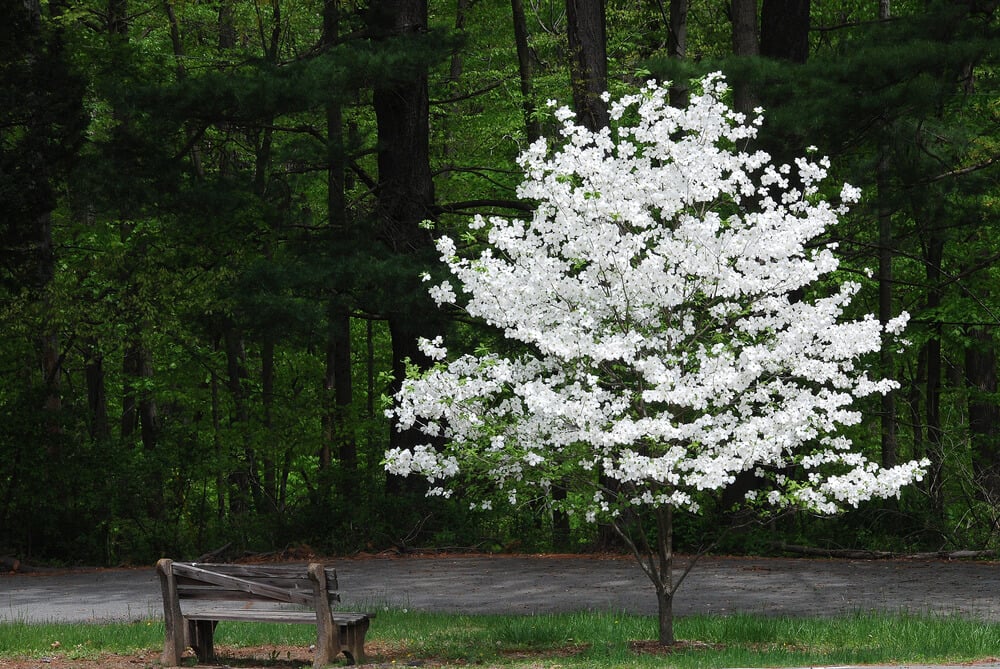
Popular Varieties: Common, White, Pagoda, Cornelian
Why Grow Dogwood Trees in New York?
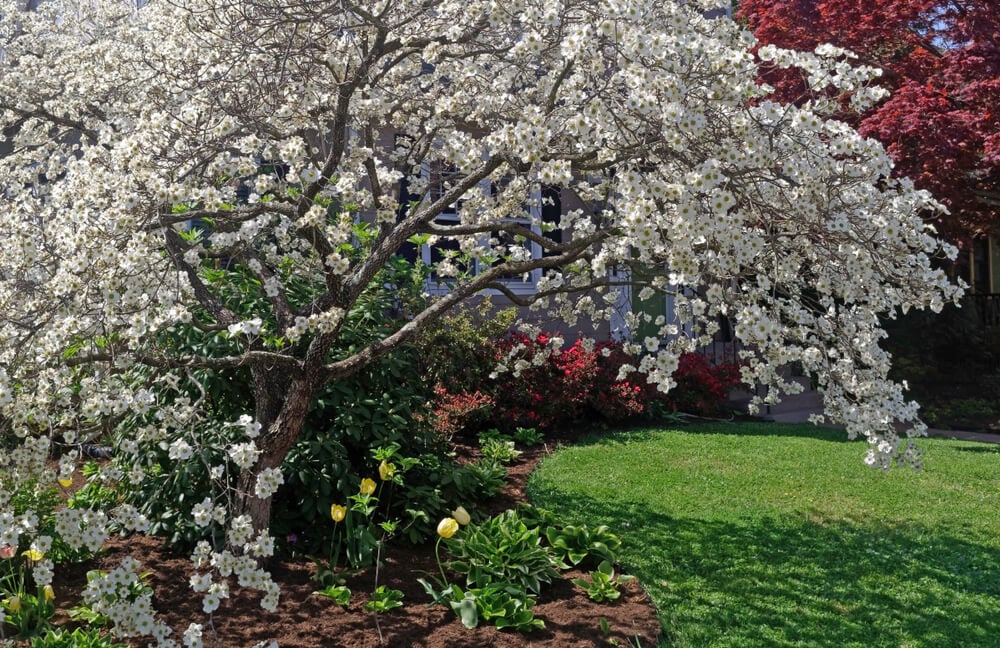
Perfect for Gardeners:
- If you are a gardener that wants a smaller tree that will benefit your garden then you want to grow a dogwood tree. This tree has beautiful flowers that will attract pollinators. It also serves as a home to attract animals that can benefit your garden. And is small enough to fit into or by most gardens!
Color:
- Dogwood Trees are known for their beautiful spring blooms. If you want to add some of the most beautiful colors into your front or even backyard without having to prune or perform any maintenance then plant a dogwood tree in New York.
THESE Could Harm Your Dogwood Trees
Disease:
- Dogwood trees are affected by almost the exact same type of diseases as fruits, vegetables, and herb plants. Expect root rot, canker, mildew, and even mold to potentially harm your tree.
Additional Resources
Dogwood Anthracnose is one of the deadliest diseases of your dogwood tree. It has affected trees since the 1980s and has killed millions of trees. Because of this, you will want to take extra care of your newly planted tree!
#10. Chestnut Tree
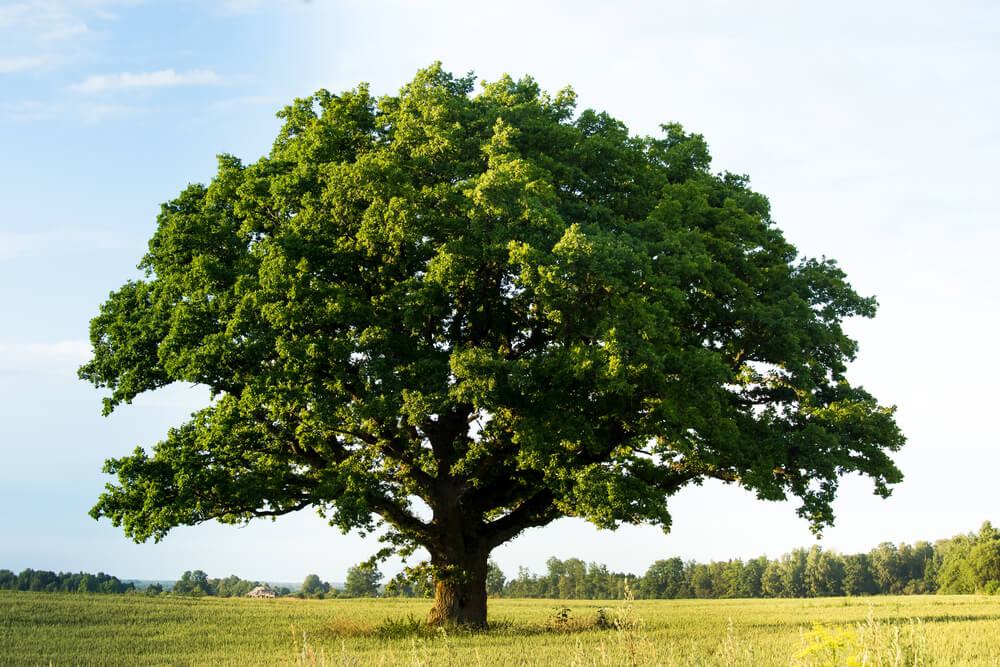
Popular Varieties: American, European, Chinese, Japanese
Why Grow Chestnut Trees in New York?
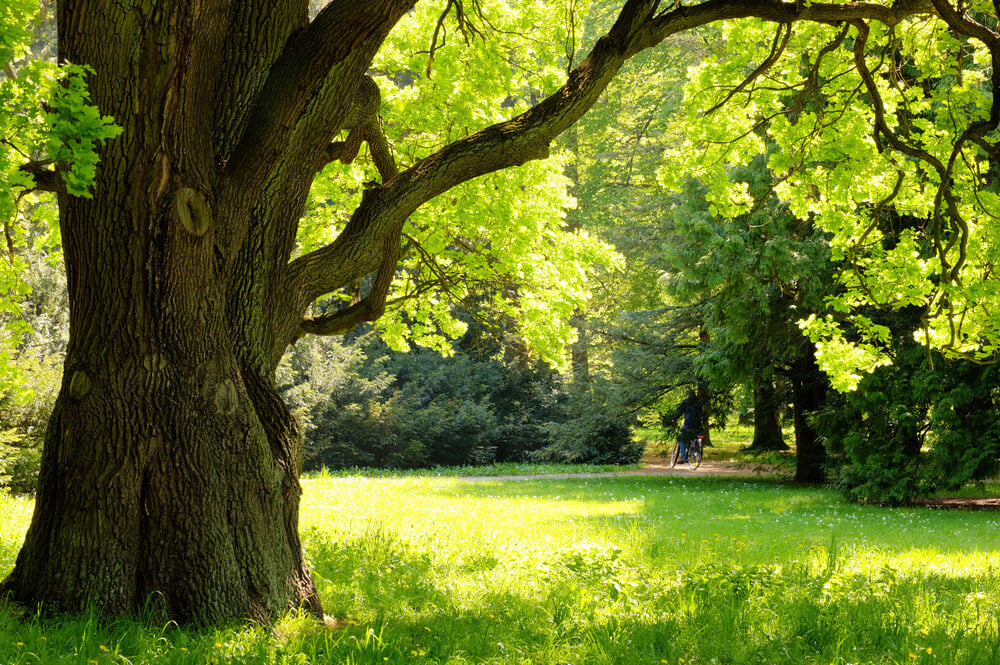
Loves heat:
- Chestnut Trees thrive in heat and humidity, making it the perfect tree to grow in New York. The hotter, the better. Expect your chestnut tree to grow over 50 feet tall providing amazing shade for your yard.
Edible Food:
- If you want to plant a tree that will produce food then planting a Chestnut Tree is a MUST! Mature chestnut trees can produce up to 100 pounds of nuts!
THESE Could Harm Your Chestnut Trees
Too Much Water:
Chestnut Trees are incredibly hardy against heat, insects, garden pests, and diseases. What will quickly kill a young chestnut tree and sometimes mature chestnut trees is too much water. To help prevent this from happening, I recommend mulching around your tree after planting it.
- Related: BEST Mulch for Trees
Additional Resources
Did you know that there are over 100 uses for chestnuts? And did you know you can make a business by selling chestnuts? Out of all the trees on this list, the chestnut tree will help you eat healthier and make more money too!
Common Growing Factors of New York’s Best Trees

As a reminder, the below factors are common for the Best Trees to Plant in New York:
- Thrives in Heat & Cold
- Can Grow in Any Soil and Conditions
- Hardy against Pests, Insects, and Diseases
- Have beautiful colors throughout the entire years
- Great Cross-Pollinator